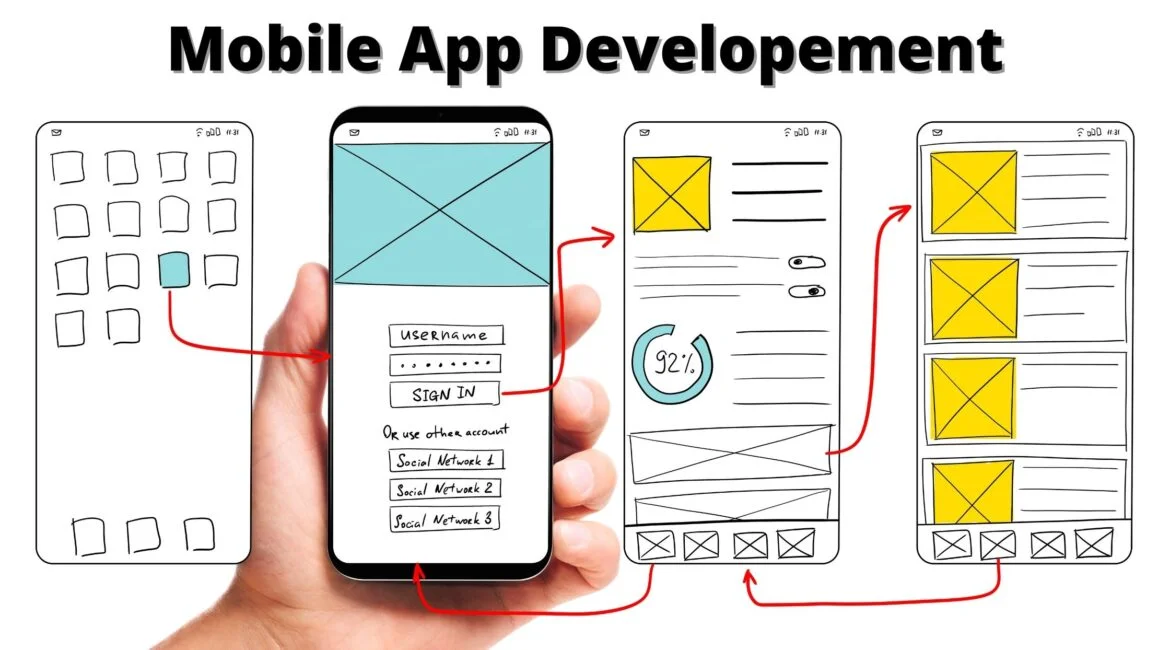
In today's digital age, mobile applications have become an indispensable part of our daily lives. From banking and shopping to social networking and fitness tracking, mobile apps offer convenience and efficiency. However, with the increasing use of mobile apps, security has become a paramount concern for developers and users alike. In this article, we will discuss the importance of security in mobile application development, best practices to ensure a secure app, and key considerations to keep in mind. If you're looking to get a professional mobile application developer then you may visit https://navyawebsolution.ca/.
Why Security is Crucial in Mobile App Development
Security is a critical aspect of mobile application development for several reasons:
1. Protecting User Data
- Mobile apps often collect sensitive user data such as personal information, payment details, and location data.
- Ensuring robust security measures are in place is essential to protect this data from unauthorized access and misuse.
2. Safeguarding Against Cyber Threats
- Mobile apps are vulnerable to a wide range of cyber threats, including malware, phishing attacks, and data breaches.
- Implementing strong security measures can help safeguard the app and its users against these threats.
3. Upholding User Trust
- Security breaches can have a significant impact on user trust and confidence in an app or brand.
- By prioritizing security in mobile app development, developers can build trust with their users and protect their reputation.
Best Practices for Ensuring Security in Mobile App Development
To enhance the security of mobile applications, developers should follow best practices throughout the development lifecycle:
1. Secure Coding Practices
- Follow secure coding guidelines and best practices to prevent common vulnerabilities such as SQL injection, cross-site scripting, and insecure data storage.
- Regularly update libraries and frameworks to address known security vulnerabilities.
2. Data Encryption
- Encrypt sensitive data both in transit and at rest to prevent unauthorized access.
- Use strong encryption algorithms and ensure keys are securely managed.
3. Secure Authentication and Authorization
- Implement secure authentication mechanisms, such as multi-factor authentication, to verify user identities.
- Enforce proper authorization controls to restrict access to sensitive features and data based on user roles and permissions.
4. Regular Security Testing
- Conduct regular security testing, including penetration testing and code reviews, to identify and address security vulnerabilities.
- Utilize automated tools and manual testing to assess the security posture of the app.
5. Secure Network Communication
- Use secure communication protocols such as HTTPS to encrypt data transmitted between the app and server.
- Avoid insecure network configurations that could expose sensitive data to interception.
Key Considerations for Security in Mobile App Development
When developing a mobile app, developers should consider the following key security considerations:
1. Compliance with Regulations
- Ensure the app complies with relevant data protection regulations, such as GDPR or HIPAA, depending on the type of data collected.
- Stay informed about the latest security standards and regulations to maintain compliance.
2. Secure Third-Party Integrations
- Vet third-party libraries and SDKs for security vulnerabilities before integrating them into the app.
- Regularly update third-party components to patch known vulnerabilities and enhance security.
3. User Education and Awareness
- Educate users about best practices for using the app securely, such as creating strong passwords and avoiding public Wi-Fi networks.
- Provide clear and transparent information about data privacy and security practices within the app.
4. Incident Response Planning
- Develop a response plan for security incidents, including data breaches or cyber attacks, to mitigate risks and minimize impact.
- Regularly test the incident response plan through simulations to ensure its effectiveness.
5. Continuous Monitoring and Updates
- Implement monitoring tools to detect and respond to security threats in real-time.
- Regularly update the app with security patches and fixes to address newly discovered vulnerabilities.
By prioritizing security throughout the mobile app development process and following best practices and key considerations, developers can create secure and trustworthy applications that protect user data and uphold user trust.